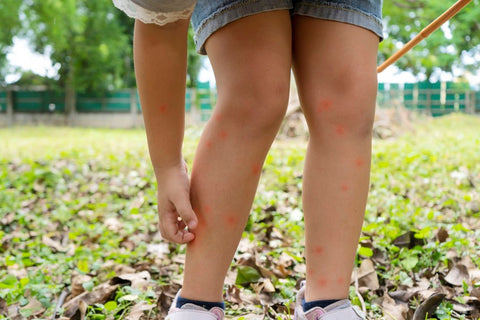
Positive West Nile Cases in North Texas
Northern Texas: Increased Risk of West Nile Virus 2020
Since the beginning of the year, medical news has had an almost singular focus on COVID-19, which is to be expected during this unprecedented pandemic. However, the attention given to the coronavirus threatens to overshadow other serious illnesses, including West Nile Virus infection. News stations in Texas have lately been discussing the current increase in the numbers of mosquitoes testing positive for the virus, particularly in the northern counties of the state.
In Dallas County, there have been a reported 11 cases of West Nile virus since the beginning of the year, according to a Dallas County news source. Out of these cases, four have resulted in death.
The Dallas County Health Department stated that West-Nile-infected mosquitoes have been found in traps this season in the cities of Addison, Balch Springs, Carrollton, Cedar Hill, Coppell, Dallas, DeSoto, Duncanville, Farmers Branch, Garland, Glenn Heights, Highland Park, Hutchins, Irving, Lancaster, Mesquite, Richardson, Rowlett and University Park.
The West Nile activity is higher this year than last, and health officials speculate that the heavier-than-average rains in June and July may have played a role in the increase. At this time, ground-spraying for mosquito eradication has been scheduled in the near future. A map has been released to the public showing the tentative areas around Dallas to be treated.

Don’t Overlook West Nile Threat
Dr. Priya Subramanian, an infectious disease specialist at Medical City North Hills in North Richardson, Texas, agrees that although COVID-19 symptoms can resemble those of West Nile virus infection, the possibility of the latter should be considered in the face of a negative COVID test. This is especially true during the summer months.
Only one in five individuals infected with West Nile Virus will manifest noticeable symptoms. However, with the increase in West Nile activity this year, Dr. Subramanian advised that any person who has been in mosquito-prone areas and is having symptoms should at least call their physician. Symptoms include fever, headache, body aches, joint pains, vomiting, diarrhea and rash.
A small percentage of people infected with the virus (about one in 150) develop serious diseases affecting the central nervous system, including inflammation of the brain (encephalitis) or inflammation of the membranes around the brain and spinal cord (meningitis).
What You Can Do
The Dallas County Health Department is recommending guidelines for people to decrease their exposure to mosquitoes, which they refer to as the “4Ds.” These are:
- DEET All Day, Every Day – Whenever you’re outside, use insect repellents that contain the active ingredient DEET, or another repellent registered with the Environmental Protection Agency. Follow all product label instructions.
- Dress – Wear long, loose-fitting and light-colored clothing.
- Drain – Drain or treat any standing water in and around your home and workplace, as these are potential breeding grounds for mosquitoes.
- All Day Long: Day, Dusk and Dawn – Because mosquitoes are active any time of the day or night, limit your time outdoors.
Considering the current increase in West Nile Virus threat, it makes sense to consider one of MosquitoNix’s efficient, highly successful mosquito control solutions:
- Misting Systems – We use an advanced, non-toxic formula for killing not only mosquitoes, but other pests and flying insects like flies, fleas, ticks, no-see-ums and spiders. The mist is dispensed from discreet locations around the perimeter of your property, ensuring effective, long-lasting protection.
- Fogging Treatments – Our innovative 100% non-toxic solution controls the life cycle of the mosquito, providing reliable bug relief that’s guaranteed for 72 hours, but lasts for up to two weeks.
- All-Natural Mosquito Treatments – Our revolutionary natural mosquito control solution is non-toxic, eco-friendly and derived from organic, cleanly sourced, beneficial bacteria. Feel good knowing that our formula creates a pest-free, safe place for your family, friends and pets to play.
Leave a comment
Comments will be approved before showing up.





